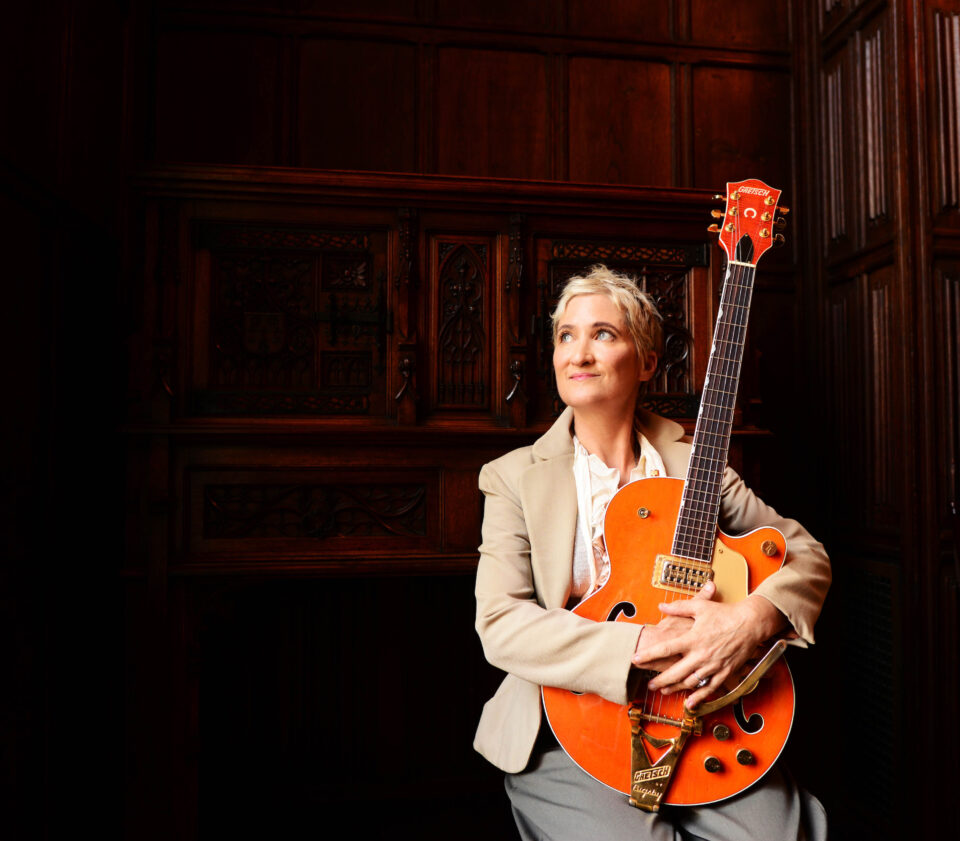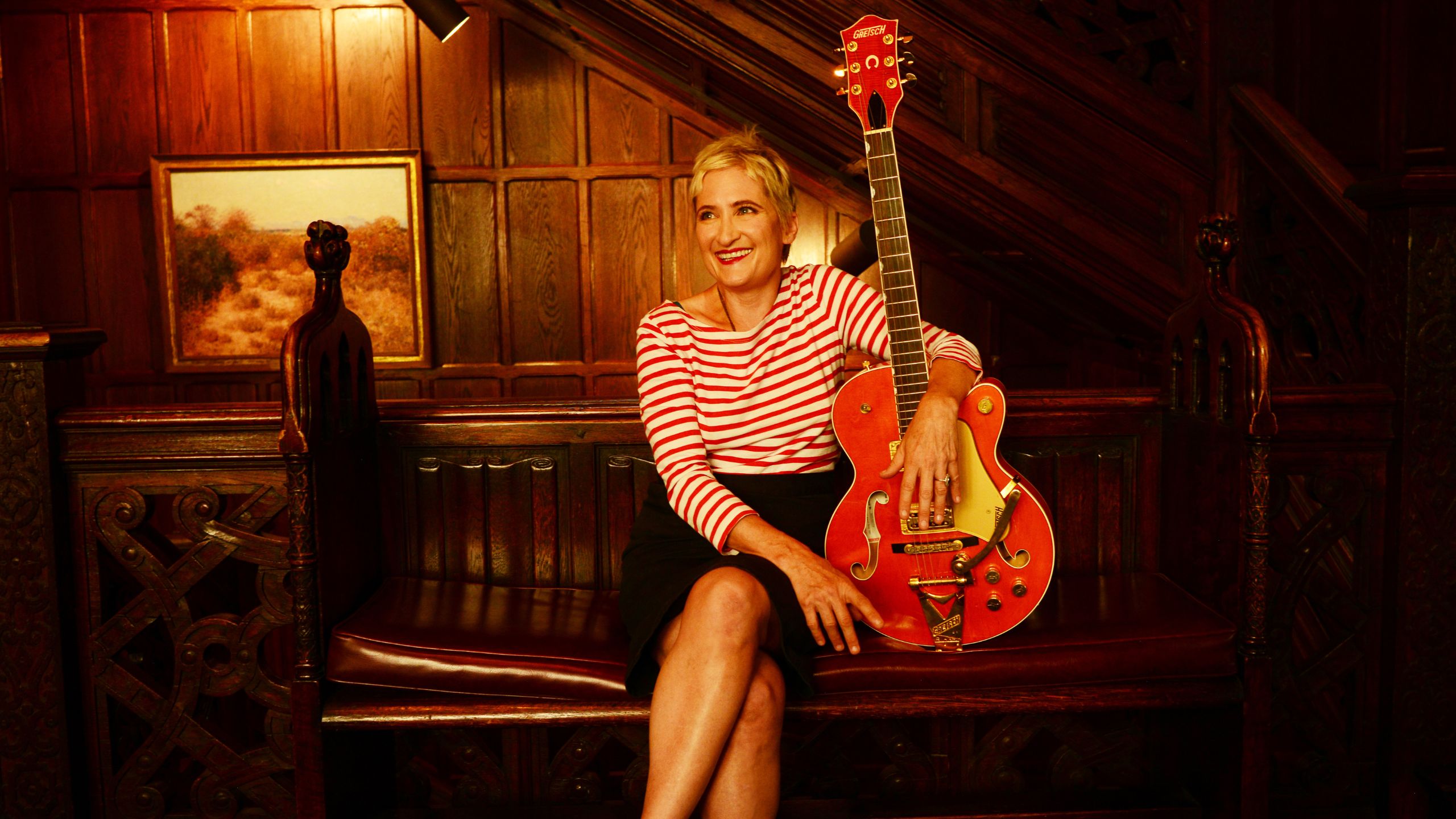If Jill Sobule was recognized solely for having her 1995 song “I Kissed a Girl” burst into Billboard’s Top 20 as that then-heteronormative chart’s first song with openly gay subject matter, so be it. Huge deal. It’s a wildly contagious song with smart, snarky lyrics that would, should, and could have been a smash if its theme was mating ducks, corkscrews, or saltlicks. The thing is, Sobule—who passed away tragically in a May 1 house fire—had so much more going for her beyond that hit and her other generational shifting track that same year in “Supermodel” from Amy Heckerling’s film Clueless. Two coming-of-age anthems for radically different crowds of women in one year? Who does that?
What Sobule had going for her, starting with her 1990 debut full-length Things Here Are Different (produced by none less than the totemic sound-shifting Todd Rundgren), was that she could craft intellectually stimulating character studies of people caught in one drama or another with a sense of ironic distance (yet closely felt emotion) better than most. She definitely did it before her closest story-forward, singing-songwriting contemporary, Aimee Mann, went solo with 1993’s Whatever. Sobule definitely, definitely did it before the current crop of like-minded lyricists and singers led by Lucy Dacus, Phoebe Bridgers, and Julien Baker. And Sobule did it in a fashion that bested the male contemporaries of her 1990s into the present, and even comparably to the past masters, such as Loudon Wainwright III—if Wainwright had been a Jewish woman who’d survived adolescent-era issues with depression, anxiety, and, as heard on “Lucy at the Gym,” anorexia.

When we think of the great songwriters with a capital “S” that littered the landscape of American lyricists, Sobule should unquestionably be there among that pantheon of scribes. Early Sobule songs such as “Living Color” and “Bitter” are devious in the lyrical display. The whole of Pink Pearl from 2000 is a masterclass in cleverness—from its title’s jokey slang for clitoris, to its humorous but empathetic offerings to the teacher who had sex with her 13-year-old student on “Mary Kay,” to her sarcastic look at the flaws of inspirational icons in “Heroes”:
William Faulkner drunk and depressed / Dorothy Parker mean, drunk and depressed
That guy in Seven Years in Tibet turned out to be a Nazi
The founding fathers all had slaves / The explorers slaughtered the braves
Paul McCartney jealous of John, even more so now that he's gone
Dylan was so mean to Donovan in that movie
Pablo Picasso cruel to his wives / My favorite poets took their own lives
Orson Welles peaked at 25, ballooned before our eyes, and he sold bad wine
Heard Babe Ruth was full of malice / Lewis Carroll I'm sure did Alice
Plato in the cave with those very young boys / T.S. Eliot hated Jews, FDR didn't save the Jews
All the French joined the resistance after the war
Raymond Chandler drunk and depressed / Tennessee Williams drunk and depressed
And here’s the kicker of “Heroes,” its grand finale: “Think I'll just get drunk and depressed.”
That’s a level of literate, literal theatricality that made her writing an autobiographical musical, 2022’s Fuck 7th Grade—one that equates her secret love of chopper bikes and Suzi Quatro with secrets kept by President Nixon—seem something of a logical conclusion; a Drama Desk–nominated musical whose original cast recording will be released on June 6, in tandem with a 30th anniversary reissue of her 1995 self-titled album, the one that holds the note on “I Kissed a Girl” and “Supermodel.” Sobule’s artsy smarts—autobiographical or not—and her frank, folk-pop musicality additionally got laid bare across her Don Was–produced 2009 song cycle, California Years, its run from “Palm Springs” to “San Francisco,” and her humorous stops at a “Bloody Valentine,” a “Mexican Pharmacy,” the “League of Failures” and, yes, "Where Is Bobbie Gentry?"
I don’t remember much about albums such as Jill Sobule Sings Prozak and the Platypus from 2008, or Nostalgia Kills from 2018, but I intend to reacquaint myself tonight. That’s something that I suggest every listener should do with her entire catalog, as well. Because I mostly feel as if, unlike a Mann or a Dacus, somehow Sobule dropped off many audiences and fellow artists’ radars for a minute. Which is screwy as, along with her fiercely original music, Sobule had a force-of-nature devotion to being out and working for all levels of LGBTQIA activism and advocacy, and was an early pioneering avatar of using crowdfunding to record and release albums before 2008. California Years and Nostalgia Kills were both made using self-created, pre-Patreon models. Such activism and invention alone should’ve been worth keeping her in the headlines, if not guaranteeing that her albums and shows got majorly reviewed and previewed.
No matter. Do it now. Jill Sobule kissed a girl and she liked it—all for you. Now it’s your turn.







